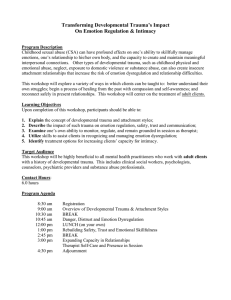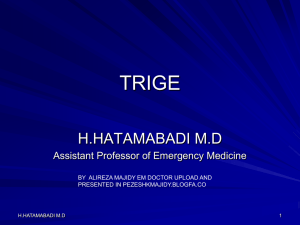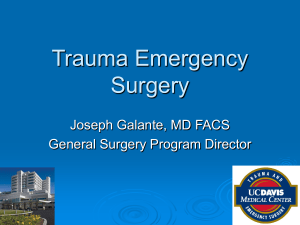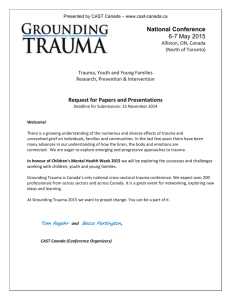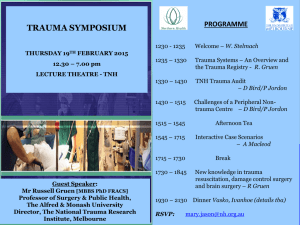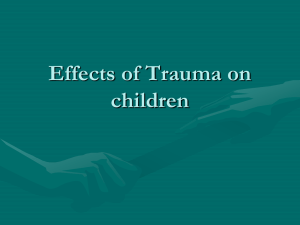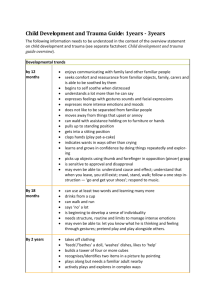How does art therapy help people work through with trauma and loss
advertisement
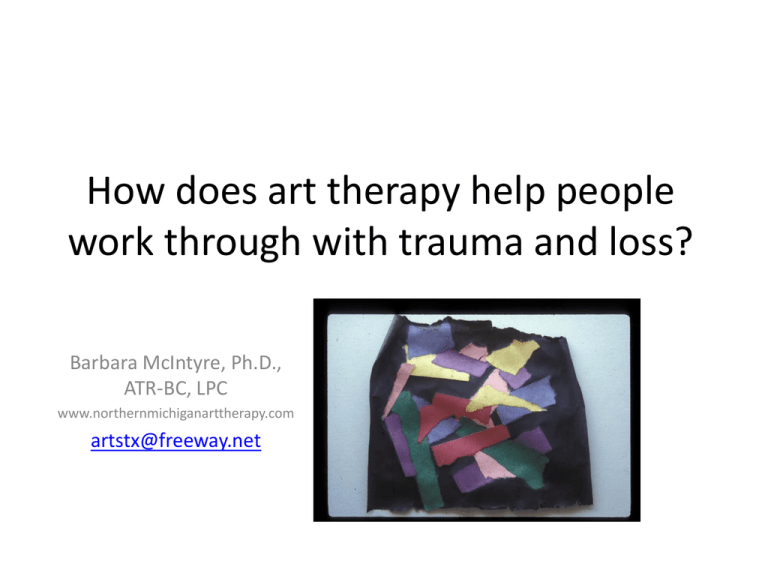
How does art therapy help people work through with trauma and loss? Barbara McIntyre, Ph.D., ATR-BC, LPC www.northernmichiganarttherapy.com artstx@freeway.net Definition of Trauma Trauma occurs whenever an external threat overwhelms a person’s coping resources. (definition from M. Hoersch presentation, 2013) The characteristics of trauma include: 1. Picture-individual has an emotionally charged mental picture of the event 2. Timing-the event was sudden or unexpected 3. Violent-the event is perceived as being violent or forceful 4.Overwhelming-the event is perceived as being too expansive to deal with 5. Safety-the event leaves the individual feeling that they or loved ones are unsafe or threatened Art therapy provides access to visual memories • We have both an explicit and an implicit memory. • The explicit memory is cognitive based and often bypassed when a trauma occurs • The implicit memory is visual and sensory based. Art expression is a natural way to access this memory where the trauma event is stored. Art therapy provides safety • People need safety to express emotions. With art, one can relax and express thoughts and feelings at one’s own pace. Research Evidence • Neurological researchers are speculating that a possible cause for PTSD may be the exclusion of traumatic memories from explicit memory storage, and that art may provide a bridge between implicit and explicit memory (Malchiodi, 2003) From art to words; the bridge • Art therapy uncovers unconscious material, producing a product that can be used therapeutically for the client to give words to the images created. Trauma and Development • When a trauma occurs in one’s life, development is compromised. Mastering developmental stages is key in a healthy life. Developmental issues • Art therapy provides mirroring, psychological distance and containment for clients who are working on mastering missed developmental stages. Developmental issues • Affect regulation (a task that is developed with attachment) is one that is organized nonverbally. Art therapy is a natural avenue for self-regulation. Reconnecting with others • Art expression is a superior way to communicate the devastating effects of trauma and abuse, it commands empathy from the viewer (a picture is worth a thousand words). Increases Self-esteem • When products that are satisfying to the client are created, there is an increase in empowerment and esteem. Art Therapists • Art therapists are professionals trained in both art and therapy. They are knowledgeable of human development, psychological theories, clinical practice, spiritual, multicultural and artistic traditions, and the healing potential of art. They use art in treatment, assessment, research and provide consultation to allied professionals. Art therapists receive credentials through www.atcb.org The American Art Therapy Association web site is www.aata.org




